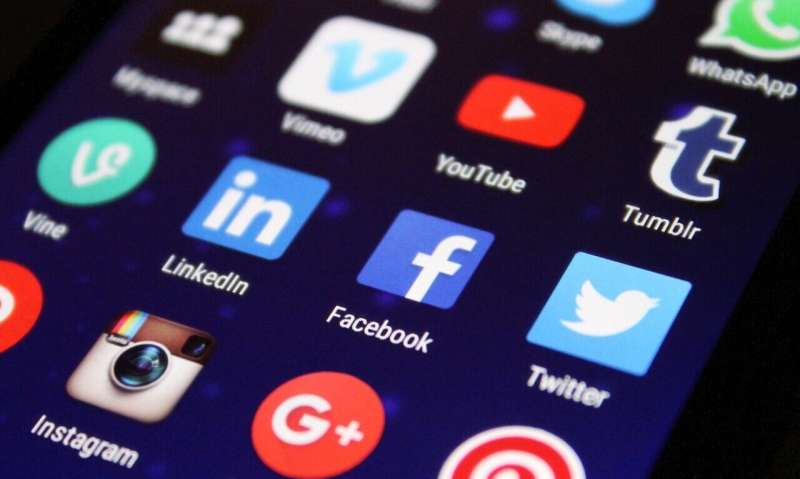This article has been reviewed according to Science X's editorial process and policies. Editors have highlighted the following attributes while ensuring the content's credibility:
fact-checked
peer-reviewed publication
proofread
Researchers study the effects of using multiple social media channels on well-being

Social media have become an integral part of everyday life. However, numerous studies have produced conflicting results on how the use of these applications affects the mental health of their users.
A common assumption is that the use of many different social media platforms has a negative impact on users' well-being. Researchers Sophie Lohmann and Emilio Zagheni, Director of the Max Planck Institute for Demographic Research (MPIDR) in Rostock, Germany, investigated this assumption.
In their study, they used a statistical technique to adjust for the fact that people who use a number of social media platforms may be different to start with. The result of the study shows that the use of many different social media platforms is not a significant risk factor for the well-being of the users. The findings are published in the journal PLOS Digital Health.
Previous studies inaccurate: Data bias has to be accounted for
"Previous studies have only looked at single variables such as depression or general health. Or the type of social media use was not clearly defined," Lohmann said. The study conducted by Lohmann and Zagheni examines how the use of several different social media channels affects users' well-being—taking self-selection bias into account.
The study used a sample of adults from the 2016 General Social Survey (U.S.). Self-selection refers to the bias that arises when people who choose to be part of a study are systematically different from those who do not participate.
"In the case of studying social media data, self-selection takes place by users signing up to the platform on their own. The result of an analysis of social media data can therefore be skewed by the fact that the participants themselves decide whether they belong in the sample or not by registering with a platform," explains Sophie Lohmann. The researchers adjusted for this self-selection effect in their study.
"In essence, we reweighted the sample and simulated that each participant had the same probability of belonging to the groups 'no social media use,' 'one social media channel,' 'two social media channels' and so on."
No effect on users' well-being
The results of the study show that people who use multiple social media channels are no happier or unhappier than others.
"Even when we do not apply our method, there is very little correlation between the use of multiple social media platforms and the outcome variables, such as relationship satisfaction, financial satisfaction, general satisfaction, trust in the state, and so on. When we apply our method, all negative effects disappear completely," says Lohmann. The assumption that the use of multiple channels leads to overload is not confirmed.
Better operationalizations desirable
"Overall, techniques to identify causal effects of social media use on well-being, where applicable and appropriate, should receive more attention in the debate. High-quality longitudinal studies and experiments also exist already. These different building blocks need to be better combined in future research."
"The research topics are diverse and, above all, very complex. It is therefore important to define exactly what is meant by 'social media use' and not to lose sight of the complexity of the platforms. Twitter is not the same as Facebook, which is not the same as TikTok. The way people use the different channels is very different. This must not be neglected in research," she said. "In the future, more attention needs to be paid to operationalization in social media research. It needs to be clearly defined what social media use means and what kind of use has which effect."
More information: Sophie Lohmann et al, Diversity of social media use: Self-selection explains associations between using many platforms and well-being, PLOS Digital Health (2023). DOI: 10.1371/journal.pdig.0000292





















